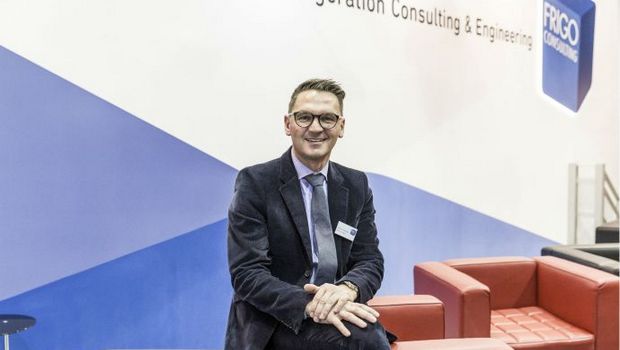Frigo-Consulting: Ejectors herald bright future for CO2

CO2 transcritical systems with ejectors have a bright future in supermarket refrigeration, according to Frigo-Consulting’s Marcus Hoepfl.
Marcus Hoepfl, managing director of Frigo-Consulting International Ltd. – a Swiss refrigeration consulting and engineering company – said that the “future [of supermarket refrigeration] will be a [CO2 transcritical] booster [system] with an ejector”.
Hoepfl believes ejectors are among the most effective ways to improve system efficiency, depending on the market you are operating in. Amid constant pressure to improve system efficiency, he argues that a booster system with an ejector is the way to go.
Reducing energy demand can help industry to meet economic and sustainability targets alike. In commercial refrigeration, ejectors are one way to get there. The devices can improve the efficiency of refrigeration systems by up to 40% for CO2 transcritical systems.
“You have to use this higher evaporation temperature to achieve the additional efficiency,” Hoepfl says.
Ejectors can also dramatically extend the scope to use CO2 as a natural refrigerant across the spectrum – from smaller convenience stores to large hypermarkets – by helping to overcome the so-called ‘CO2 equator’. The CO2 equator refers to the previously accepted geographical limit for cost-effective and efficient performance of CO2 systems in all food retail store formats.
Hoepfl is hopeful that Spain and other warmer regions will install more CO2 transcritical systems soon.
Hard work pays off
Bringing CO2 transcritical to new warm-ambient-climate countries is not without its challenges for installers, consultants and system manufacturers, Hoepfl admits.
“It all depends on the country. The first time they do it, the costs can be high and they have to calculate the risk,” he says.
For Frigo-Consulting, this means training trusted installers to install systems and end users on how to operate them.
“We train them […] on site. The perfect situation is if we install with our own solution,” Hoepfl says.
Often the reaction of trained local installers plays a crucial role in the success of CO2 transcritical technology in new countries. If installers are proud of their achievements and bring other staff on board, then “you create a good momentum and motivate them to go further [with the technology],” he concludes.
